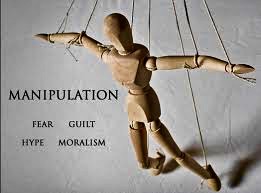
Trevor Todd and Jackson Todd have over 60 years combined legal experience in handling contested estates due to undue influence.
Undue influence is very common in dysfunctional families and many of the indicators to watch out for are summarized in this blog.
I am frequently approached by members of a family who suspect that one or more of their siblings have unduly influenced or will try to do so that a parent will provide a disproportionate share if not all of their assets to that sibling(s).
The problem is further compounded due to the typical lack of communication that exists amongst dysfunctional family members.
Such dysfunctional family members are almost by definition suspicious and estranged from each other, combined with a problematic relationship with one or both parents.
The following are some guidelines for those who are trying to determine if unduly influence has been or is attempted to being exercised upon an elderly parent by one or more siblings. Please note that in law, undue influence must amount to coercion and not simply sustained pressure:
Twenty Three Clues To Identify Undue Influence:
1. Check to see that the parent has gone to a lawyer of his or her choosing, particularly with a past history of working together, as opposed to being taken to a lawyer who only known to or friendly with the sibling in question;
2. Try and determine if your parent has sufficient mental capacity to properly instruct a lawyer of his or her choosing;
3. If the family is ethnic determine if the parent has sufficient language skills to instruct the lawyer without the use of an interpreter, and be particularly wary of the questionable sibling acting as interpreter;
4. Be aware of red flags, such as a black sheep member of the family suddenly reappearing and becoming the caregiver and decision-maker for the elderly parent;
5. If the parent lives in a care home, or independent living, try and make as many caregivers and knowledgeable people aware of any potential problems that you fear may arise by a sibling, whom you suspect may attempt to unduly influence your parent;
6. Be familiar with the assets owned by your parent(s) and who manages or oversees those assets, and inform all involved as to concerns of potential undue influence;
7. Be aware of any appointment of power of attorney or change in power of attorney to any sibling that is not to be trusted by his or her other siblings- usually such individuals have a history of manipulation;
8. Be aware of any threats of violence, or threats of putting an elderly vulnerable parent into a nursing home against his or her will;
9. Be aware of any depression, or drug or alcohol abuse that the elderly parent may be experiencing and are having problems dealing with;
10. Be aware that if you have concern about financial abuse of an elderly parent, you should report the matter to the Public Guardian and Trustee for the Province of British Columbia, who has a statutory duty to investigate the circumstances;
11. Inform the family doctor or other treating physicians of any concerns that you may have as to possible manipulation to the point of undue influence of an elderly parent;
12. Compile a list of events, circumstances and a timeline that may indicate circumstances that may collectively amount to undue influence;
13. Be aware of any significant decline in physical or mental capacity on the part of the parent;
14. Be aware of any drastic changes in the provisions of the will or power of attorney that under the circumstances do not make sense;
15. Be aware of the parent being kept in isolation from others, and being unavailable to take telephone calls;
16. Be aware of dependency on others, particularly a suspected sibling, when the parent is dependent on the sibling for sight, hearing, mobility, speech, personal needs, or care;
17. Look for signs of inappropriate clothing, cleanliness, bruising or untreated injuries;
18. Be aware of signs of early dementia, which typically involve some of or all of the following problems -short-term memory loss, disorientation, confusion, and difficulties with finances;
19. Be aware of signs of depression, agitation, frustration, mood swings, difficulty making decisions and other such significant changes in the parents emotional makeup;
20. Be aware of significant gifting and donations that are totally out of character for the elderly parent- this may involve the suspected sibling or may also involve third-party predators such as telephone solicitations;
21. Be aware when a third-party, particularly the suspected financial abuser, speaks for and on behalf of the elderly parent who typically withdraws from such conversations;
22. Insist upon financial transparency between siblings and parents with respect to financial decisions and estate planning;
23. Trust your gut feeling and be cognizant of the body language of both the parents and the suspected financial abuser, for such signs as anxiety, insecurity, embarrassment, or general unwillingness to talk about financial or care matters



